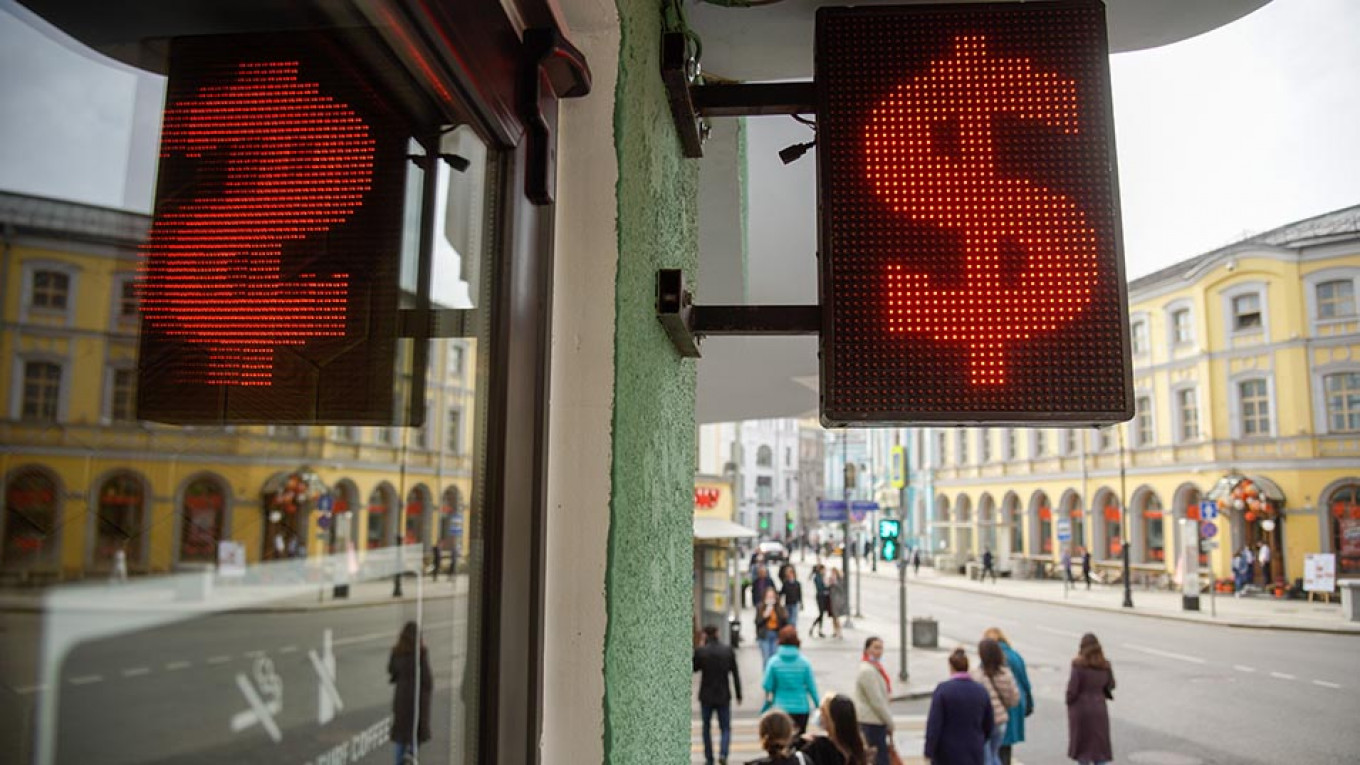The share of Russian exports sold in U.S. dollars has fallen below 50% for the first ever time, according to Central Bank data analyzed by Bloomberg.
In the fourth quarter of 2020, 48% of Russia’s exports were sold in dollars — down from a 61% share registered in the same period a year earlier.
The fall below 50% is a symbolic achievement for Moscow’s high-profile dedollarization drive, as big state-controlled exporters have renegotiated contracts in a bid to reduce Russia’s reliance on the U.S. dollar. In 2013, Russia received 80% of its export earnings in dollars.
But the imposition of sanctions following Russia’s annexation of Crimea pushed the Kremlin to intensify its efforts to move away from the dollar. Russia has also reduced the dollar’s share within its government reserves and is trying to promote domestic alternatives to banking systems such as SWIFT and payment providers like Visa and MasterCard.
In recent visits to Iran and China, Foreign Minister Sergei Lavrov talked up the importance of continuing to move away from the dollar, and the latest round of U.S. sanctions against Russia has also intensified that debate in Moscow.
The shift has seen a jump in Russia’s contracts denominated in euros — up to 36% of Russian export sales during the three-month period from 21% in the final quarter of 2019. That was driven by Russia’s trade with China, which has seen a complete reversal in the position of the two currencies, with the euro now being used as the trading currency in three quarters of all Russia’s exports to China, Bloomberg said — up from as little as 1% at the start of 2018.
The combined share of the dollar and euro within Russia’s export mix has been largely unchanged since 2013, while the ruble was used in another 14% of Russia’s exports.
A Message from The Moscow Times:
Dear readers,
We are facing unprecedented challenges. Russia's Prosecutor General's Office has designated The Moscow Times as an "undesirable" organization, criminalizing our work and putting our staff at risk of prosecution. This follows our earlier unjust labeling as a "foreign agent."
These actions are direct attempts to silence independent journalism in Russia. The authorities claim our work "discredits the decisions of the Russian leadership." We see things differently: we strive to provide accurate, unbiased reporting on Russia.
We, the journalists of The Moscow Times, refuse to be silenced. But to continue our work, we need your help.
Your support, no matter how small, makes a world of difference. If you can, please support us monthly starting from just $2. It's quick to set up, and every contribution makes a significant impact.
By supporting The Moscow Times, you're defending open, independent journalism in the face of repression. Thank you for standing with us.
Remind me later.






